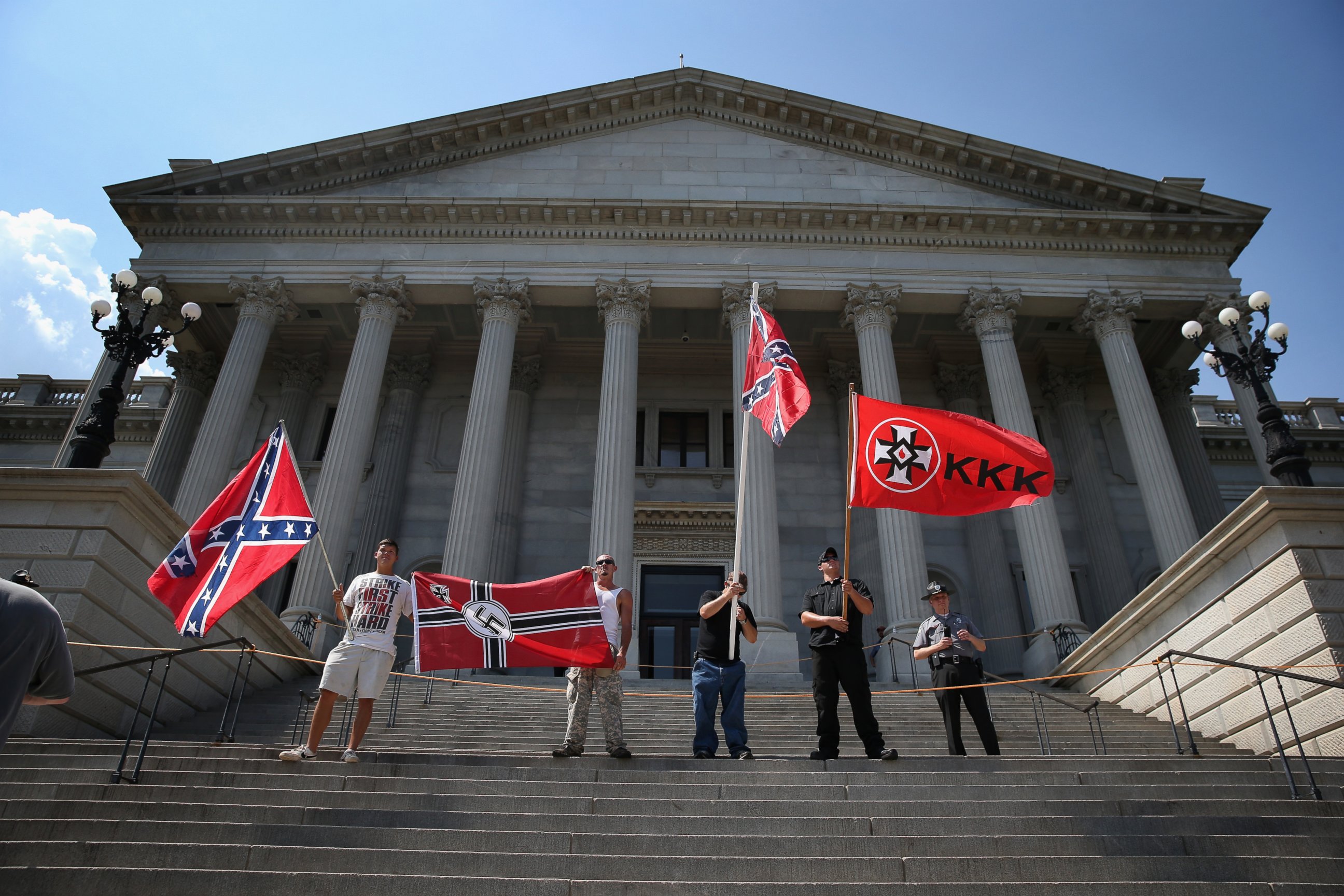Trump's Victory Buoying White Nationalists, Anti-Discrimination Advocates Say
A chapter of the KKK is planning a parade to celebrate Trump's election victory.
— -- A Ku Klux Klan group's plan to parade openly in celebration of Donald Trump's election as president is reinforcing concern among anti-discrimination activists that the Republican’s victory is buoying hate groups and white nationalist movements in the U.S.
The Loyal White Knights of the KKK says on its website that its “Victory Klavalkade Klan Parade” will take place on Dec. 3 in North Carolina. The words “TRUMP = TRUMP’S RACE UNITED MY PEOPLE” are also seen above an image of Trump on the group’s website.
No specific time or location is listed for the event, though the Loyal White Knights is based in Pelham, North Carolina, a small unincorporated community near the Virginia border. The group did not immediately respond to ABC News’ requests on Friday for comment and more information about the parade.
The organization asserts on its website that it is not a “hate group.”
The Anti-Defamation League calls the Loyal White Knights “perhaps the most active Klan group in the United States today.” In 2015, it had about 150 to 200 members and was able to draw attention to itself in 15 different states, typically through posting fliers, according to a report by the Anti-Defamation League.
“The fact that the KKK feels comfortable enough to march in the streets in support of our president is a troubling development,” said Ryan Lenz, senior writer and editor of the Southern Poverty Law Center’s Hatewatch blog, which monitors extremists and hate groups.
An Anti-Defamation League director said that although the Klan has always held public events this one would be different.
“It’s not uncommon for a Klan group to actually hold a rally. What’s uncommon is for a Klan group to hold a rally in support of the president of the United States,” said Oren Segal, director of the Anti-Defamation League's Center on Extremism. “Many white supremacist groups, alt-right groups, militia groups very much were emboldened by Trump’s campaign, whether he intended to or not."
David Duke, a former “grand wizard” of the KKK who ran for U.S. Senate in Louisiana, supported Trump, tweeting after the election that “our people played a HUGE role in electing Trump!”
Trump has several times disavowed Duke.

The Republican's presidential bid also won support from a prominent KKK newspaper, The Crusader, which used Trump’s campaign slogan “Make America Great Again” as its headline for an editorial in October lauding both the motto and the candidate. The newspaper, which bills itself as “the premier voice of the white resistance,” didn’t specifically endorse Trump, however.
The Trump campaign responded to the editorial with a Nov. 2 statement that "Mr. Trump and the campaign denounce hate in any form ... This publication is repulsive and their views do not represent the tens of millions of Americans who are uniting behind our campaign."
ABC News reached out to Trump's campaign for comment for this story, but did not immediately receive a response.
Trump's win in the presidential race was similarly cheered by Andrew Anglin, founder of the Daily Stormer website which both the Anti-Defamation League and the Southern Poverty Law Center have labeled as neo-Nazi.
“Our Glorious Leader has ascended to God Emperor. Make no mistake about it: we did this. If it were not for us, it wouldn’t have been possible,” Anglin wrote on the site. “The battle is far from over. Much, much, much work to be done. But the White race is back in the game. And if we’re playing, no one can beat us. The winning is not going to stop.”
Any resurgence in white nationalist groups may have started before Trump's presidential campaign.
A study published in September from a fellow with George Washington University’s Program on Extremism found that U.S. white nationalist groups saw their followers on Twitter grow by more than 600 percent since 2012, outperforming the increase in followers for ISIS. One possible factor for the size difference between the two groups of followers may be the frequency with which ISIS accounts were suspended on Twitter during this period, owing to reports against ISIS-linked content and efforts to drive its supporters off the platform, the study said.
The researchers also found that followers of white nationalists on Twitter were “heavily invested” in Trump’s presidential campaign.




